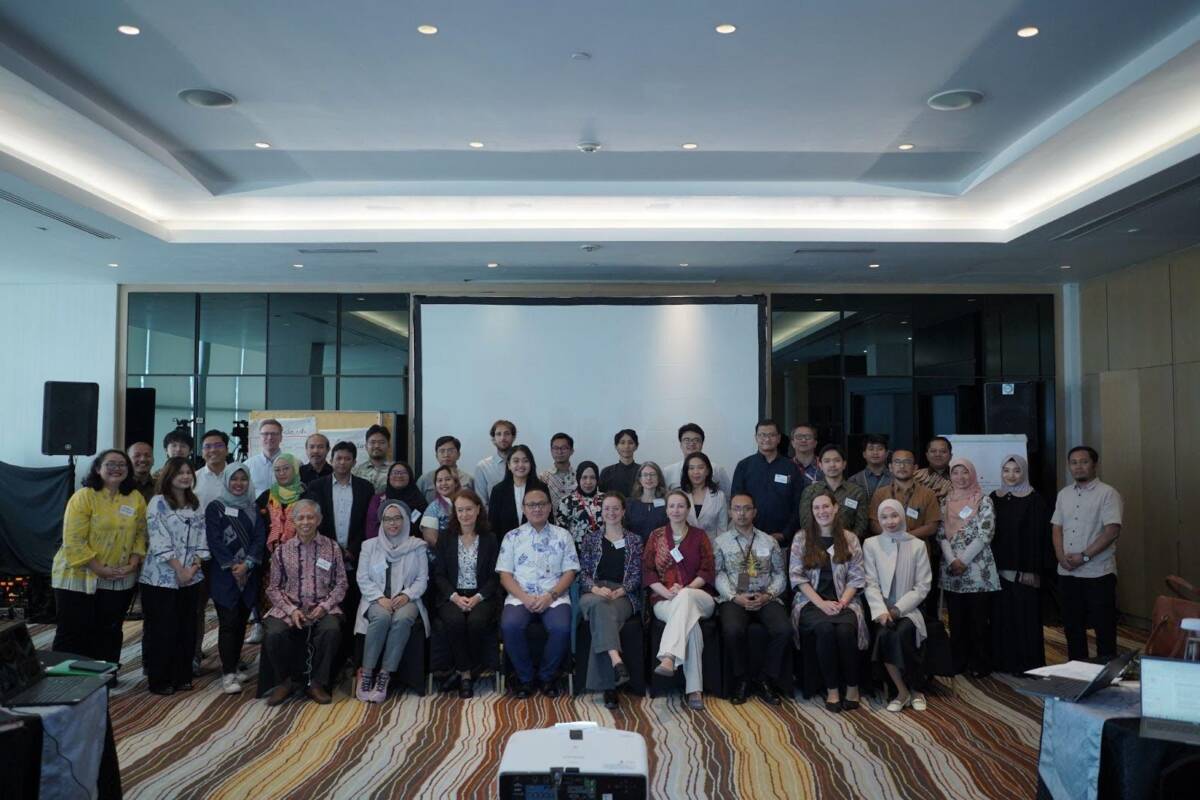Jakarta, September 19, 2024 – The climate crisis has become one of the most urgent issues facing the world today. Rising global temperatures are affecting almost every aspect of human life, from increasing global temperatures and melting polar ice caps to rising sea levels. These conditions have the potential to cause ecosystem destruction, infrastructure damage, and force millions of people to flee their homes. These impacts are not only environmental issues but also affect food security, health, and even global geopolitics.
Countries vulnerable to climate change, especially those in coastal areas or those dependent on agriculture, may face political instability and internal conflict due to resource scarcity. On the other hand, climate change can also influence international relations, such as competition over water and energy resources. This situation adds complexity to already challenging geopolitical relationships.
Reflecting on these conditions, the GeoClimRisk project was initiated to explore the relationship between geopolitical priorities and climate risks, focusing on the opportunities and challenges related to the transition towards a low-emission and climate-resilient future. GeoClimRisk is a project from the German Ministry of Foreign Affairs under the International Climate Initiative (IKI), jointly led by the Potsdam Institute for Climate Impact Research (PIK) and the Climate Diplomacy Action Programme (CDAP), implemented by Deutsche Gesellschaft für Internationale Zusammenarbeit (GIZ). The project is being conducted in four countries, one of which is Indonesia. In Indonesia, the project is being implemented in collaboration with the Institute for Essential Services Reform (IESR) as the local partner. The focus of this project is researching how climate-induced risks affect geopolitical and economic stability.
Arief Rosadi, Program Manager for Climate and Energy Diplomacy and Policy at IESR, said that the GeoClimRisk project provides an opportunity for Indonesia to understand the broader implications of climate change, not only for its energy transition but also for its geopolitical position in the region. As an archipelagic nation with 17,000 islands and a population of 270 million, Indonesia is vulnerable to rising sea levels and faces unique challenges.
“Indonesia has signed the 2015 Paris Agreement and established a long-term strategy to address the climate crisis. However, we need to enhance current climate policies and achieve a green economy, which is a promising step towards boosting the country’s overall development,” Arief stated at the GeoClimRisk Workshop on Thursday (19/9/2024).
Fanny Thornton, Senior Researcher at the Potsdam Institute for Climate Impact Research (PIK) and GeoClimRisk Project Lead, introduced the GeoClimRisk project and provided an overview of the study’s approach, particularly in Indonesia. According to her, there are four work packages that will guide this study: mitigation and energy transition risks, adaptation and physical risks, geopolitical risks from climate-related transitions and damage, and geopolitical risks associated with climate-induced migration and conflict.
“The Potsdam Institute for Climate Impact Research has developed a planetary boundary system for climate change to understand the macro-level impact of climate change on societies and economies. The country-level approach focuses on policymaking and climate risk,” Fanny emphasized.
Elena Barth, Advisor forDeutsche Gesellschaft für Internationale Zusammenarbeit (GIZ) and Project Co-Lead for GeoClimRisk, highlighted the importance of effective communication and engagement with relevant stakeholders to ensure that the project’s outcomes can help inform decision-making at all levels of government.
“GIZ plans to strengthen the climate change relationship between Indonesia and Germany through a project that identifies geopolitical risks and develops policy recommendations, as well as promotes global collaboration and understanding. This study can only be achieved by utilizing all available data, as this ensures efficient use of resources. The project aims to identify the geopolitical risks of climate change and develop policy recommendations to mitigate risks, as the impacts are felt by all of us,” explained Elena.

